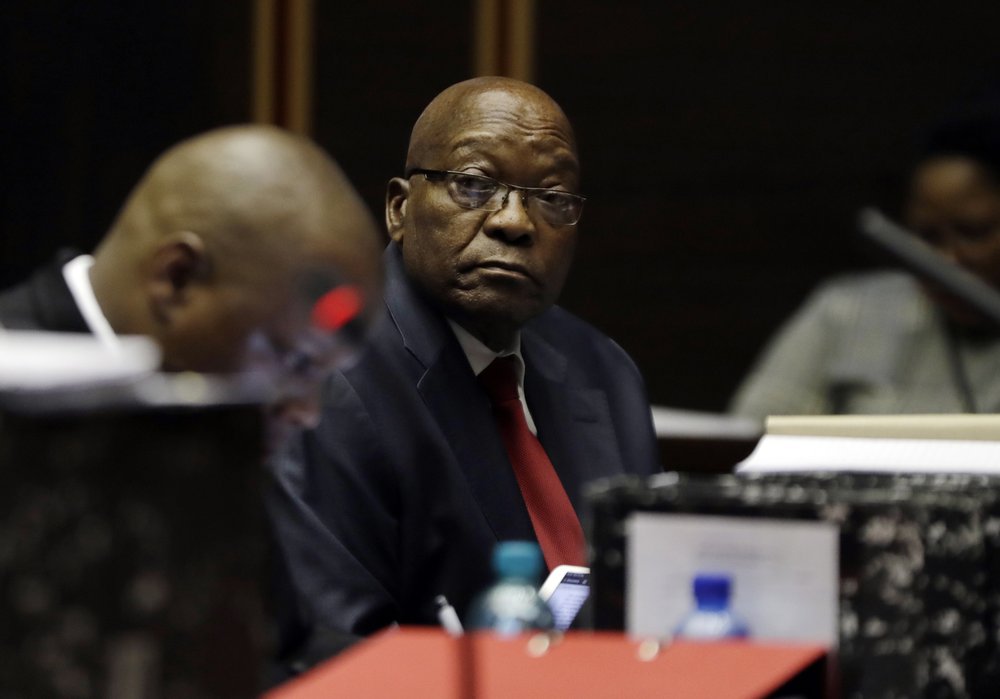In a striking political move, Jacob Zuma, former President of South Africa, has declared his intention to neither vote for nor campaign on behalf of the ruling African National Congress (ANC) in the forthcoming general election. This decision by Zuma, a pivotal figure in South Africa’s recent history, is not merely a personal renunciation but signals a deeper strategic maneuver. He aims to recast himself as a saviour of the very party he once led, amidst a backdrop of significant political and social unrest in the nation.
Zuma’s tenure as president was marred by allegations of widespread corruption, casting a shadow over the ANC’s reputation. His governance period is often associated with the darker aspects of South Africa’s recent past. Despite this, he commands a loyal following, who view him as a misunderstood and pivotal figure in the nation’s history.
In his announcement, Zuma criticised current President Cyril Ramaphosa, whom he accuses of betraying the ANC’s revolutionary ethos. This attack is deeply personal, rooted in a history where Zuma, in 2014, appointed Ramaphosa as his deputy. However, four years later, amid escalating corruption allegations, Zuma resigned, paving the way for Ramaphosa’s presidency.
Zuma’s political career is lengthy and storied. Joining the ANC as a teenager, he was a fervent anti-apartheid activist and spent ten years in prison as a political prisoner. He was a member of the ANC’s armed wing, uMkhonto we Sizwe (MK), contrasting with Ramaphosa, who, although also an anti-apartheid activist, was not associated with MK and had spent years outside politics as a businessman.
Zuma’s latest move includes endorsing a new party, adopting the name and abbreviation of the ANC’s former armed wing, MK. This gesture is laden with symbolism, particularly given the timing and location of the announcement—16 December in Soweto, coinciding with the anniversary of MK’s founding and a significant event in South African history, the Battle of Blood River.
This new political venture by Zuma is set against a backdrop of significant socio-economic challenges in South Africa, including high unemployment, violent crime, and vast inequality. These issues are central to Zuma’s criticism of the current ANC leadership, which he accuses of failing to deliver justice and equality post-apartheid. He speaks of a “new people’s war,” albeit one fought through ballots, not bullets, and labels Ramaphosa as a “proxy” for “white capitalist interests.”
Zuma’s rhetoric raises concerns about potential violence and instability, especially considering the unrest in 2021 following his imprisonment over contempt of court charges. That period of violence was particularly intense in his home province of KwaZulu-Natal, where he still enjoys substantial support.
Looking ahead, Zuma has hinted at forming a “patriotic front” and “voting bloc” post-2024 elections, indicating a willingness to collaborate with other parties. This strategy suggests a recognition of the need for broader political alliances to challenge or complement the ANC’s governance.
The ANC, in response to Zuma’s latest move, has not yet issued a formal statement. However, it has previously asserted its ownership of the MK legacy, with the secretary general indicating potential legal action to retain the name.
Jacob Zuma’s departure from the ANC to support a new party signals a pivotal moment in South Africa’s political history. It reflects deep internal divisions within the ANC and the broader societal challenges that South Africa continues to face. As the nation approaches a critical election, Zuma’s actions highlight the ongoing struggles to reconcile its tumultuous past with an uncertain future, striving towards a more equitable and just society. The outcome of these political developments will undoubtedly have a profound impact on the nation’s trajectory and its efforts to uphold the ideals of democracy and reconciliation.





